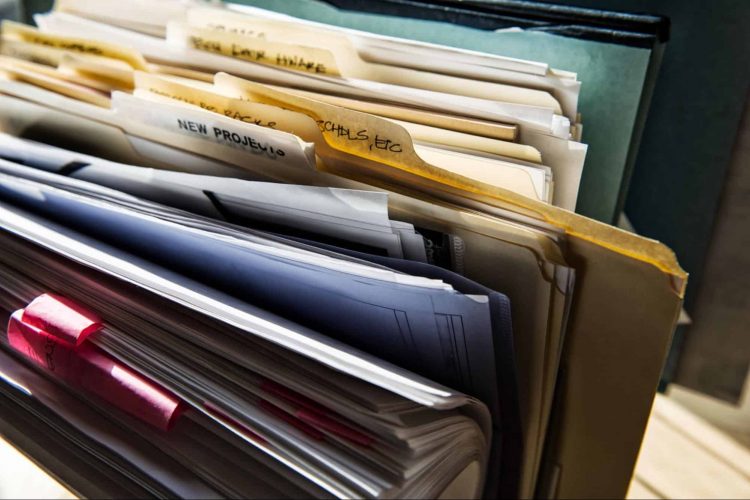No matter how small, anyone running a business in Australia needs to keep accurate records of their income and expenses. This is not only important for compliance with income tax return laws, but it also helps to keep track of your financial performance over time.
The best way to stay on top of your record-keeping is to set up a system that works for you. This might mean keeping physical files, scanning and storing documents electronically, or using accounting software to track your transactions.
Whatever system you choose, the key is to be consistent in your record-keeping so that you can easily access the information you need when it comes time to file your taxes. But how long does the Australian Tax Office (ATO) require you to keep tax records?
This article will break down everything you need to know about tax record keeping, including how long to keep them, the general rules for keeping receipts, special circumstances where you may have to keep your records for longer, and the best ways to keep your tax records organised.
What is the General Rule for How Long to Keep Tax Records Australia?
In Australia, businesses must keep tax records for a minimum of five years. This ensures that the ATO can verify the income and expenses declared in a company’s annual tax return. Keeping accurate and up-to-date records also allows businesses to track their progress and identify areas where they may be able to save money.
Additionally, if a business is audited by the ATO, having complete and accurate records will help to ensure the audit process runs smoothly.
What Records are Businesses Required to Keep for their Tax Return?
Businesses must keep several different types of records relating to their financial operations and employees.
Financial Records
The financial records that businesses must keep for tax purposes include:
- Income and sales records such as tax invoices and receipts
- Purchase records such as order invoices
- End of financial year records such as debtors, creditors, depreciating asset worksheet, stocktake and capital gains tax (CGT) records
- Bank records such as deposits, withdrawals, loans, a credit card statement and business expenses
- GST records if your business is registered for GST
- Fuel tax records should you wish to claim a fuel tax deduction
Employee Records and Tax Affairs
If your company employs staff, you’ll need to keep additional employee records for tax and superannuation purposes. These include:
- Superannuation contributions
- PAYG withholding payments
- Receipts of employee reimbursements for work-related expenses
- Payroll information
- Worker compensation insurance

Are There Exceptions to the Five-Year Rule?
While the general rule is to retain these documents for a period of at least five years, in some cases, you may need to keep records for longer. For example, employee records are generally kept for five to seven years after their terminated employment contract.
Other instances include:
- Records for depreciating assets must be kept for five years after the final depreciation claim is submitted [1]
- Records of any tax losses carried forwards [2]
- Records that the ATO has disputed must be kept for five years after the dispute has been resolved.
- Records for the cost base of any investment property or share investment. [3]
[1] In other words, if you’ve been claiming depreciation deductions for eight years, you’ll need to keep those records for a further five years once the final claim is lodged.
[2] You’ll need to keep records from the start of those losses until five years after you’ve claimed them.
[3] When you dispose of capital gains tax assets such as property or investment shares, you’ll have to calculate that sale’s capital gain or loss for CGT purposes. To make an accurate calculation, you’ll have to keep a record of all the cost base expenses, including the purchase prices, other purchasing costs, and the cost of holding the capital asset. That means you’ll have to hold onto the records until you dispose of the property plus five years after that.
How Should You Keep Your Records?
Businesses can choose how to retain their records: electronically or manually. Although either option is generally acceptable, the ATO has indicated a preference for electronic records. The reasons for this are twofold.
Firstly, electronic records are easier to store and organise. This makes it simpler and quicker to retrieve the information you need when you need it. Secondly, electronic copies can be backed up and duplicated, so you’re less likely to lose important data. In contrast, original paper records can be more challenging to keep track of, and they’re vulnerable to being lost or damaged.
Several different software programmes are available that can help with record-keeping, such as Xero, Quickbooks, and MYOB. These tools allow businesses to track their finances, customers, and inventory in one place. They can also generate reports for making better business decisions or when the ATO requires them for an audit.

What are the Penalties for Non-Compliance with Record-Keeping Rules?
Failure to meet the ATO’s reporting requirements can result in a financial penalty. The financial penalty can range between 5 penalty units ($1,110) and 20 penalty units ($4,440), depending on the severity of the breach, the compliance history of the company, and any extenuating circumstances contributing to the breach.
Key Takeaways
Maintaining accurate records is a critical part of any business. Not only does it ensure compliance with ATO regulations, but it also provides valuable information to make informed decisions about the business.
The law requires businesses to keep a wide range of records for taxation and superannuation purposes, and the ATO’s five-year record-keeping rule is one of the most important. Retaining the right records will assist your business at tax time and may help resolve any disputes that may arise. In addition, accurate record keeping can help you keep track of your financial performance and identify opportunities for improvement.
Therefore, your business needs to develop comprehensive record-keeping systems that meet your specific needs. You may want to seek professional advice from a registered tax agent on the best way to do this.
Here at KNS Accountants, we offer a comprehensive range of bookkeeping and record-keeping services that can eliminate the hassle of staying compliant. We can help you to keep track of your finances, prepare tax returns, and stay up-to-date with the latest changes in legislation.
So if you’re looking for a partner to take care of your bookkeeping and record-keeping requirements, get in touch today.






